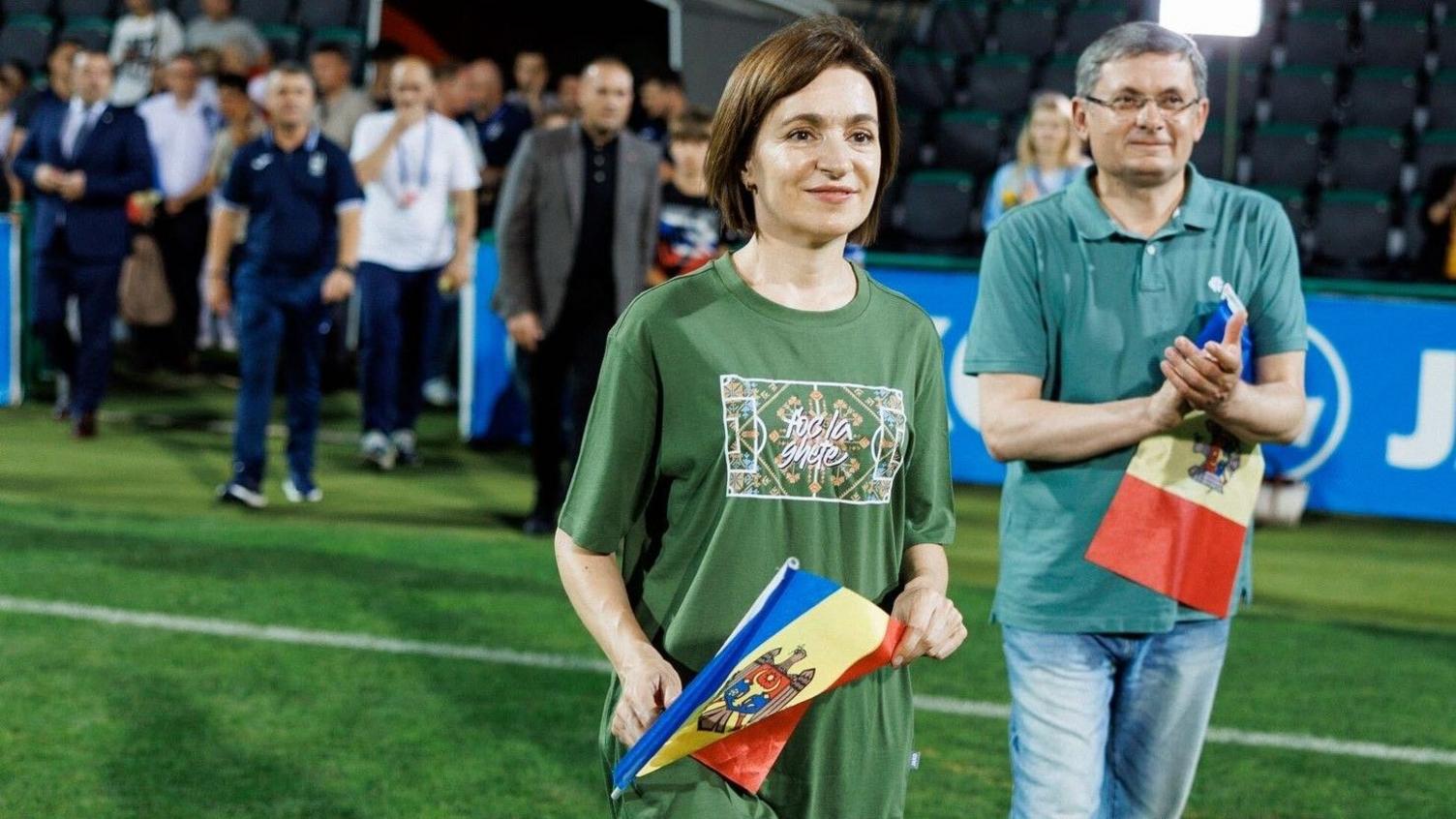Moldova says 'Yes' to pro-EU constitutional changes by tiny margin
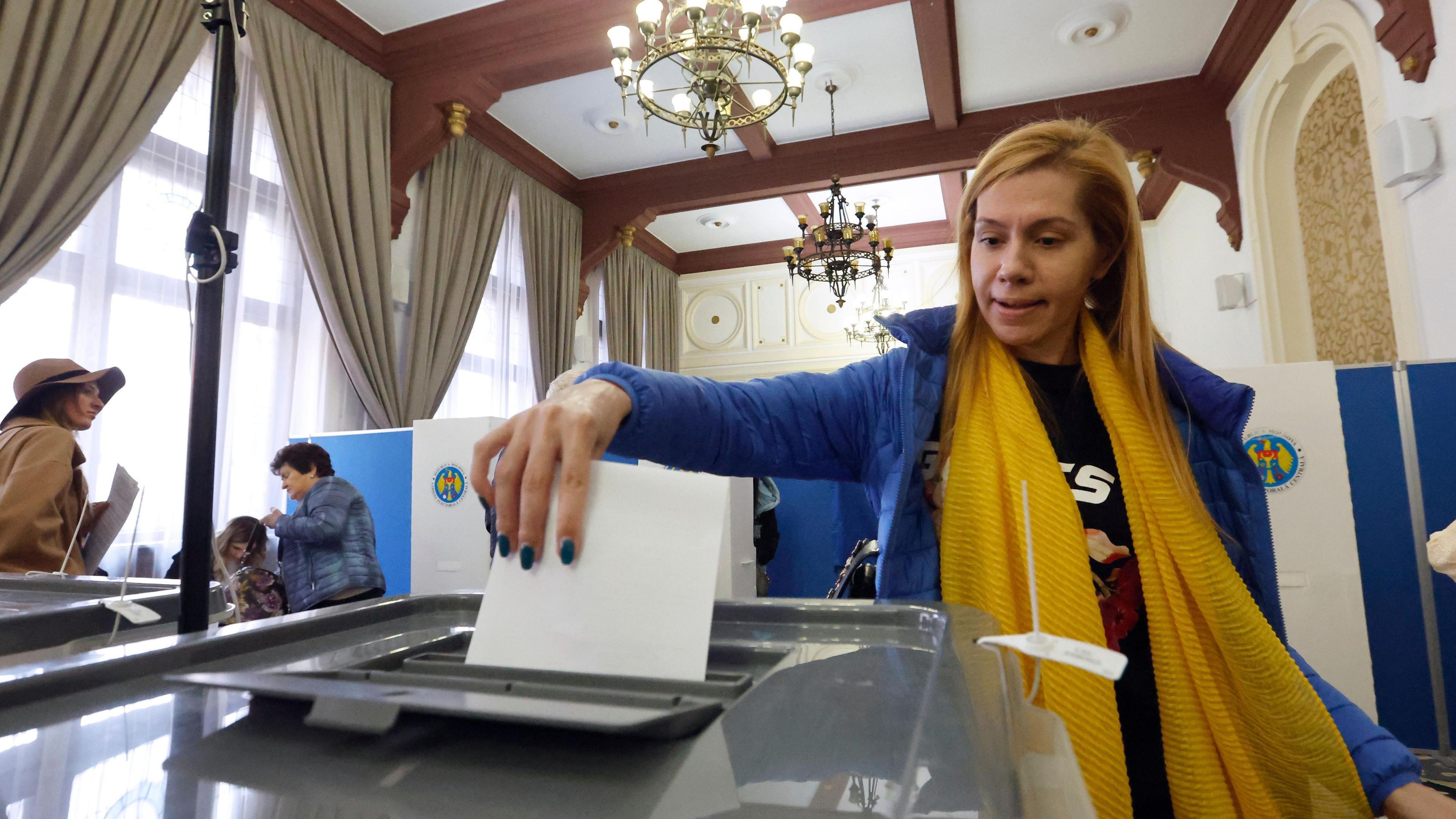
Turnout in the two votes stood at more than 50%
- Published
People in Moldova have backed the Eastern European country's proposed changes to its constitution and commitment to joining the EU by the thinnest of margins in a referendum.
Official data put Yes on 50.46% and No on 49.54% on Monday afternoon, with more than 99.6% of votes counted.
The knife-edge nature of the vote has come as a shock to many. The referendum had been widely expected to comfortably pass in the country of 2.6 million, which borders Romania and Ukraine.
The vote was combined with presidential elections in which Maia Sandu, the incumbent pro-EU president, failed to win re-election outright and faces a second round next month.
Responding to the referendum result, she said pro-EU forces had won the first battle in a "difficult fight", which she also called "unjust".
She accused those she called Moldova’s "enemies" - and criminal groups – of trying to buy votes and said it was a dangerous phenomenon for any democracy.
On Sunday, Sandu had denounced the narrow result as the product of foreign interference in Moldovan politics and said Moldova had suffered an "unprecedented assault on democracy".
On neither occasion did she refer to Russia explicitly, but in recent weeks Moldovan authorities uncovered a giant scheme of payments coming from Moscow – and paid to people to vote against her and the EU referendum.
The Kremlin spokesman, Dmitry Peskov, said Sandu would need to present "evidence" for her claims that there had been foreign interference in the vote.
EU spokesperson Peter Stano said on Monday that the vote had taken place "under unprecedented interference and intimidation by Russia and its proxies".
Last month Ilan Shor, a pro-Russian Moldovan businessman and politician who now lives in Russia, said he would pay money to convince “as many people as possible” to vote No or to abstain in the EU referendum. This week, Shor then made a video statement telling people to vote for "anyone but Sandu" in the presidential election.
On Sunday, the BBC stumbled upon evidence of vote-buying at a polling station for residents of the breakaway Moldovan region of Transnistria - which is economically, politically and militarily supported by Russia.
A BBC producer heard a woman who had just dropped her ballot in the transparent box ask an election monitor where she would get paid.
When we asked directly whether she had been offered cash to vote, she admitted it without qualms. She was angry that a man who had sent her to the polling station was no longer answering her calls. “He tricked me!” she said.
BBC finds evidence of vote-buying in Moldova's EU vote
She would not reply when asked who she had voted for.
As well as the referendum on changing the constitution, Moldovans also voted in the country's presidential election on Sunday.
The votes were seen as key tests for the country, which is facing a choice between pushing on with EU membership or keeping close ties to Russia.
Sandu topped the election first round with 41% of the vote versus her closest opponent's 26%.
The result for Aleksandr Stoianoglo, who is supported by the pro-Russian Party of Socialists, was considerably higher than expected.
Sandu will now face a difficult second round on 3 November in which her eliminated rivals - populist Renato Usatii and former Gagauzia governor Irina Vlah - will likely unite against her behind Stoianoglo.
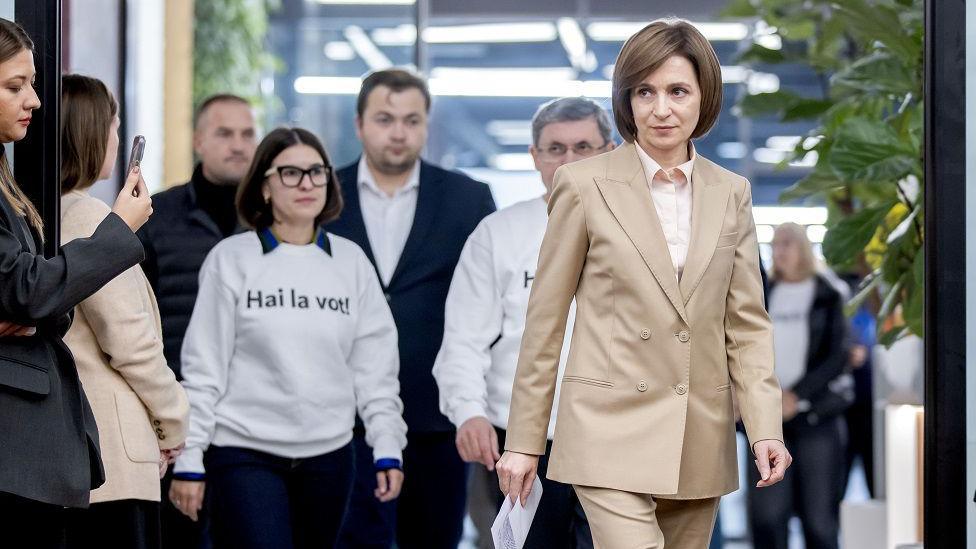
Maia Sandu arrives to give a press briefing in Chisinau, following a disappointing result for her
She accused "criminal groups" of working together with "foreign forces", using money, lies, and propaganda to sway the vote.
Sandu also said her government had "clear evidence" that 300,000 votes were bought, which she called "a fraud of unprecedented scale".
Moldova is currently in talks with the EU on becoming a member. These accession talks will continue despite Sunday’s outcome, as the referendum was not legally binding.
The vote, however, was supposed to make the process irreversible. Instead, it feels a little shakier now.
At Sandu's election headquarters on Sunday evening, the mood was extremely subdued, with one of her advisers describing the result so far as "not what we expected".
Sandu, who has cultivated close ties with Moldova’s EU neighbours, had campaigned for the Yes vote in the referendum. She had previously said the vote was would set up the future of Moldova for "many decades ahead".
When the first results began trickling in showing that the No vote had done better than expected, Sandu’s team put the disappointing results down to the first count coming in from villages and rural areas.
The big city count narrowed the lead for the No vote, but by 01:00 (22:00 GMT) few thought the Yes camp could still stand a chance.
Many of Sandu’s supporters left her headquarters in Chisinau where they had been hoping to celebrate her victory before the count was even over. The little EU flags they’d been given to wave were abandoned, on chairs or strewn on the ground.
But as the night went on, the gap narrowed even further.
In the end, the Yes vote clinched it - but only just.
Voter turnout stood at more than 51% when polls closed at 21:00 local time (18:00 GMT), making the referendum valid.
Several presidential candidates boycotted the referendum. Aleksandr Stoianoglo said he did not support the idea of changing the constitution - although he added he was a supporter of his country's "European aspirations".
However, many young people queuing at polling stations on Sunday were vocal about their support for Moldova’s future as an EU member state, with some saying they were voting because they wanted to choose a European future for their country – for the sake of the economy and for more opportunities.
Some said they were fed up of being "pulled" towards Moscow, decades after the Soviet Union collapsed and Moldova became independent.
"We have to choose a European future for our country, for our children, our future – for geopolitics, for peace, that’s the most important," a voter called Oksana told the BBC. "Because we are between Europe and Russian influence, and we have to choose what we want."
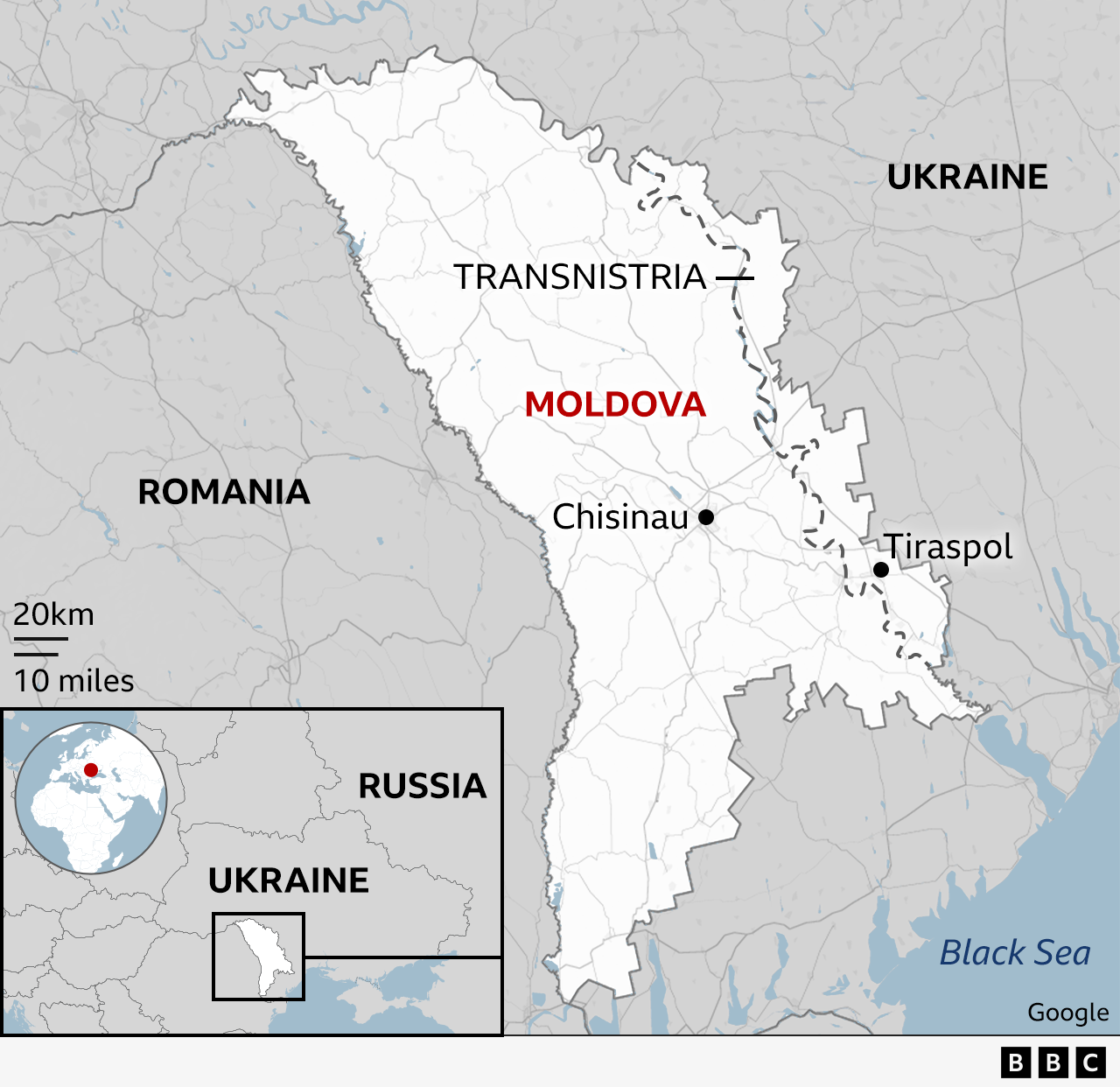
Related topics
- Published20 October 2024
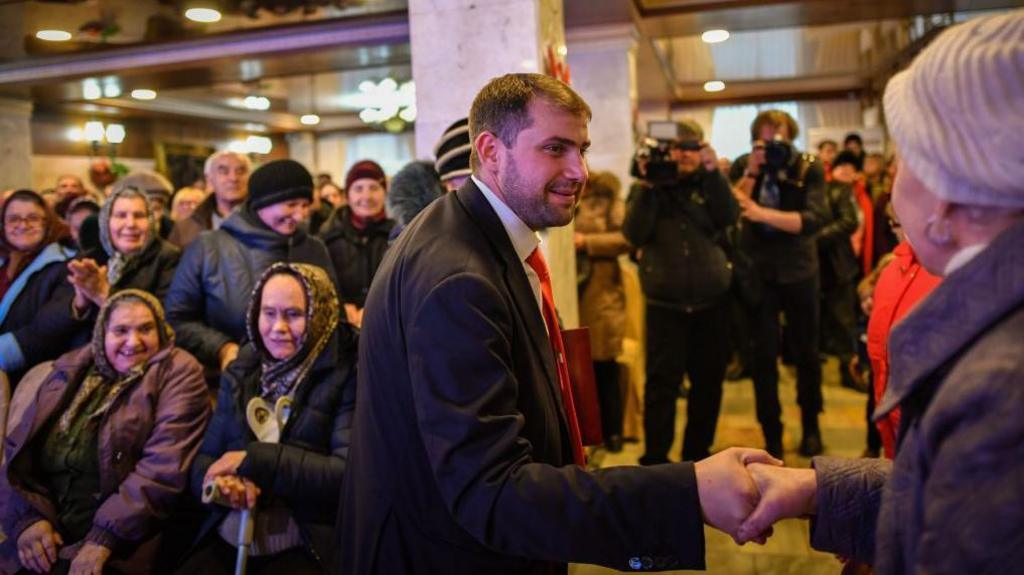
- Published30 October 2024
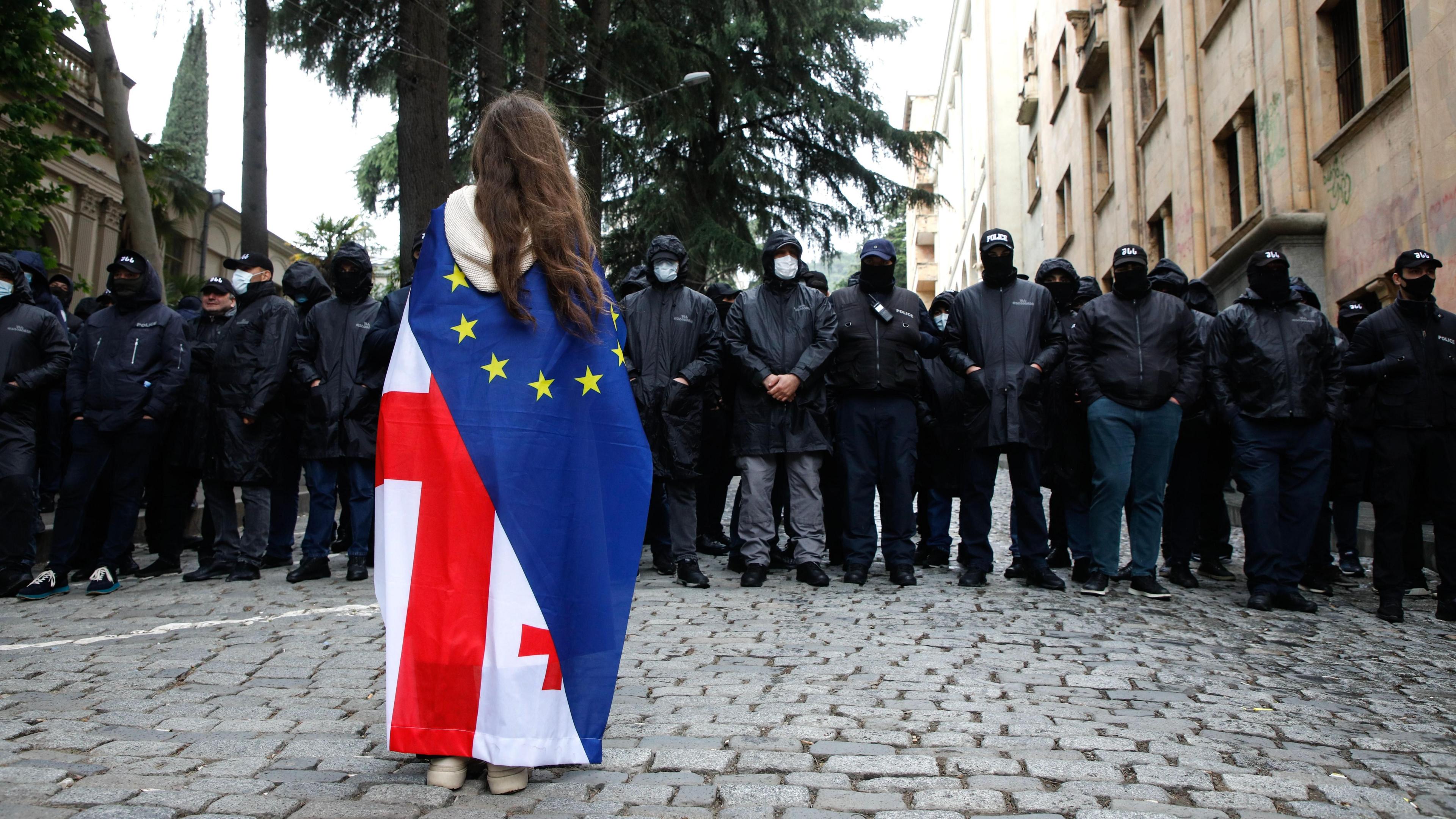
- Published25 June 2024
